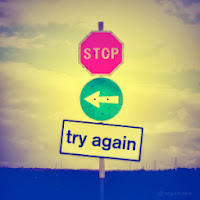| Image credit : http://bit.ly/1dQn0GP |
Some of us make our own resolutions for the New Year! So what are your resolutions for your career and your job search for 2014?
Here's a list of 10 resolutions that you could refer to, to help you through your job-search in 2014 :
1. Set daily goals
- Make 2 new contacts directly or through existing contacts
- Make a list of target companies and find one contact in any of your target companies
- Do something related to the new trends in your industry - read an article (not just the news); speak to someone in the industry about some recent trends/ developments; have a point of view
- do an honest self-assessment of your achievements, setbacks, gaps, etc.
- write down your personal assessment and fine-tune it over time
- ask about 4-5 people you've worked with in the past to share their assessment about you
- use some of the online assessment tools to help find your stresngths and gaps
- lots of tips and advice available; read, adopt and adapt
- connect with new people
- learn something new
- revamp your resume; make one if you haven't made one in years
- ask a senior colleague to interview you
- critique your online presence
- make a professional LinkedIn profile
- follow-up
- be prompt
- convey a sense of eagerness, energy and urgency
- but know when to 'back off'
- maintain a mailing list; keep adding names
- send relevant updates (monthly or quarterly) about yourself
- sharing relevant, useful information with your mailing list
- refer people and connect people
- customise your resume
- make a list of potential questions and write down your answers
- read up about the company, the position and the people you are meeting
- thank people who you had reached out to
- update them with your new contact details
- find some way of helping these people
- don't burn bridges
- let them know that you are keen on related opportunities
- reach out to others in the same organisation
- stay in touch; be persistent, but not painful
- find ways to stay positive
- focus on learnings
- firmly believe that 'whatever happens, happens for the best'
- don't keep doing the same thing and expect miracles; try something different!



